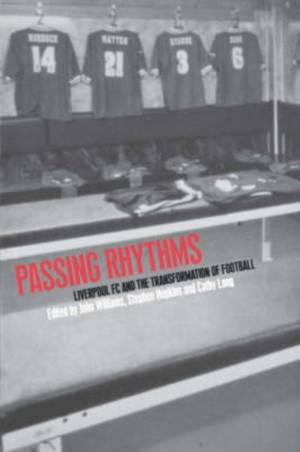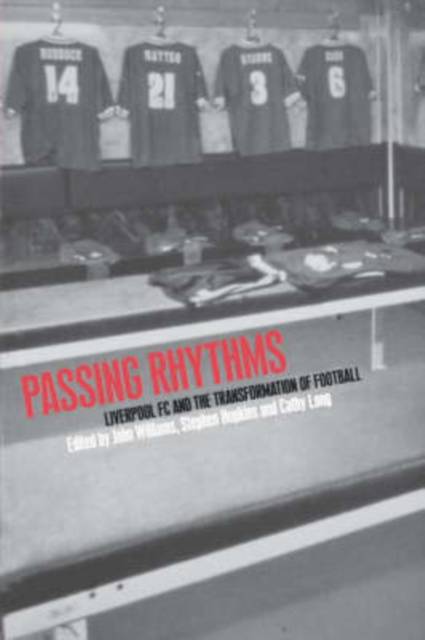
- Afhalen na 1 uur in een winkel met voorraad
- Gratis thuislevering in België vanaf € 30
- Ruim aanbod met 7 miljoen producten
- Afhalen na 1 uur in een winkel met voorraad
- Gratis thuislevering in België vanaf € 30
- Ruim aanbod met 7 miljoen producten
Zoeken
Passing Rhythms
Liverpool FC and the Transformation of Football
€ 89,95
+ 179 punten
Omschrijving
Liverpool Football Club, in stark contrast to its competitors, remains locally owned, not a conglomerate or media business. Unlike its main rivals, the Liverpool club has been loathe to pursue global markets for merchandizing - though it attracts a huge fandom around the world - and its ambitions remain resolutely fixed on footballing success. No football club has ever had such an extended period of dominance in the English game, nor extended that dominance to Europe so effectively. Many of the current crop of top young players are locally born and are a central feature of the city's nightlife, as well as national icons in pop/football/youth culture. But there are fears that the Club's great days have now passed. At the height of its powers in the 1980s, Liverpool FC was the site of two catastrophic crowd disasters, which effectively transformed the sport and added to wounding perceptions about the city's alleged sentimentality, fatalism and irreversible decline. The legacy of the Heysel and Hillsborough tragedies continues to shape the self-image of the Club and those who support it. A seething rivalry with nearby corporate giant Manchester United is a constant reminder of football's new order. Addressing all of these concerns, as well as Liverpool's global reputation as the home of the Beatles and the 'Mersey sound', this book takes an original approach to the study of football by examining its links with other important popular culture forms, especially pop music, but also television and youth styles. In particular, however, it looks at the very special meaning of football in Liverpool.
Specificaties
Betrokkenen
- Uitgeverij:
Inhoud
- Aantal bladzijden:
- 252
- Taal:
- Engels
- Reeks:
Eigenschappen
- Productcode (EAN):
- 9781859733035
- Verschijningsdatum:
- 1/03/2001
- Uitvoering:
- Paperback
- Formaat:
- Trade paperback (VS)
- Afmetingen:
- 162 mm x 235 mm
- Gewicht:
- 390 g

Alleen bij Standaard Boekhandel
+ 179 punten op je klantenkaart van Standaard Boekhandel
Beoordelingen
We publiceren alleen reviews die voldoen aan de voorwaarden voor reviews. Bekijk onze voorwaarden voor reviews.









